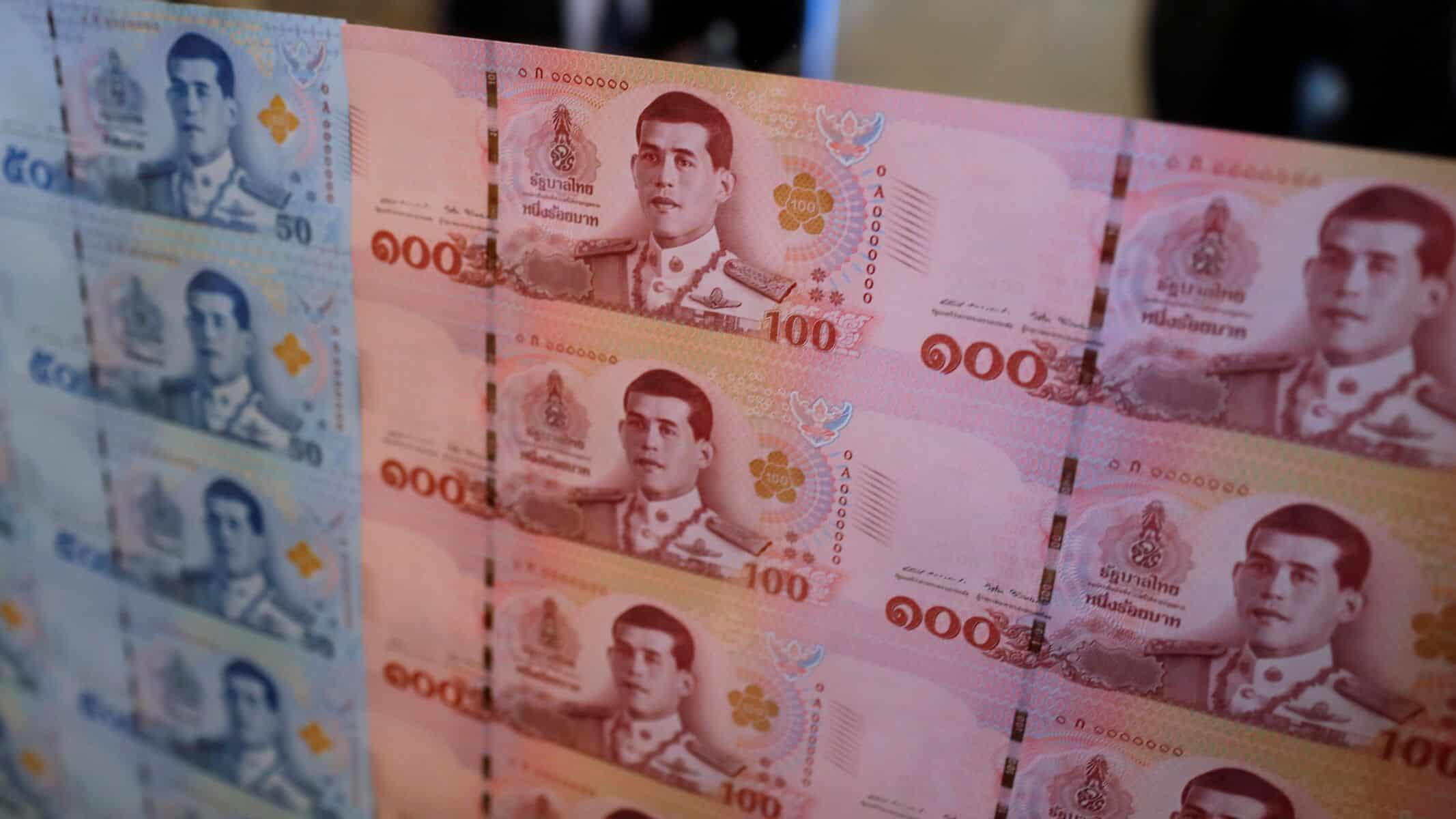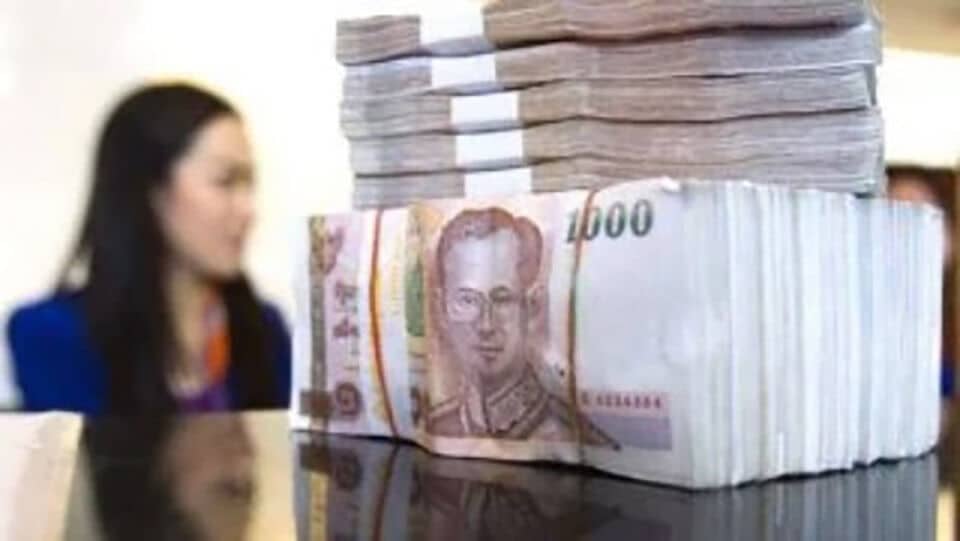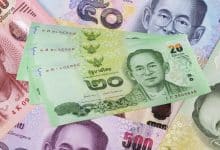Baht to the future: Thai currency eyes 33 mark as dollar dives

The Thai baht is flexing its muscles on the global stage, with experts predicting it may surge past the symbolic 33-per-dollar mark in the second quarter, fuelled by trade tensions, a faltering US economy, and sky-high gold prices.
According to Kasikorn Research Center (K-Research), the baht has climbed to a six-month high, riding the wave of a weakening US dollar battered by President Donald Trump’s tariff threats and growing uncertainty in global markets.
As of yesterday morning, April 17, the baht was trading at 33.18–33.20 to the dollar, a slight dip from Wednesday night’s 33.08, reported Kanjana Chockpisansin, head of banking and finance research at KBank’s think tank.
“The baht could further appreciate beyond the key range of 33 to the dollar this quarter if tensions between the US and key trading partners, especially China, persist or escalate. This scenario would lead to further weakening of the dollar.”
The dollar’s drop has been dramatic this year, the dollar index has fallen by 8%, while the baht has gained 2.4% since December, when it was hovering around 34.10 to the dollar.
Investors are fleeing the dollar for safer currencies like the Japanese yen and Swiss franc, which have surged 10.2% and 11.1% respectively, year-to-date, reported Bangkok Post.

Adding to the baht’s bullish momentum is the meteoric rise in gold prices, which shattered records this week by hitting US$3,357.78 per ounce, that’s nearly 119,000 baht. As gold soars, so too does the Thai currency, traditionally seen as a regional safe haven.
Despite strong baht signals, foreign capital continues to flee the Stock Exchange of Thailand. Outflows have hit 46.9 billion baht this year so far, a far cry from 2024’s total of 148 billion, but still cause for concern. Meanwhile, Thai bonds are pulling in overseas money, with 38.2 billion baht in foreign inflows reported.
Over in Washington, US Federal Reserve boss Jerome Powell is keeping an anxious eye on Trump’s tariffs, warning they could stoke inflation even as economic growth and jobs take a hit, added Kanjana.
“The market is speculating that if inflation rises due to Trump’s tariff policies, the Fed might reduce rates at its May 6–7 meeting, ahead of the previously anticipated cut in June.”
If that happens, the baht could soar even higher, giving Thai importers a reason to smile, and exporters a fresh headache.
Latest Thailand News
Follow The Thaiger on Google News:


























